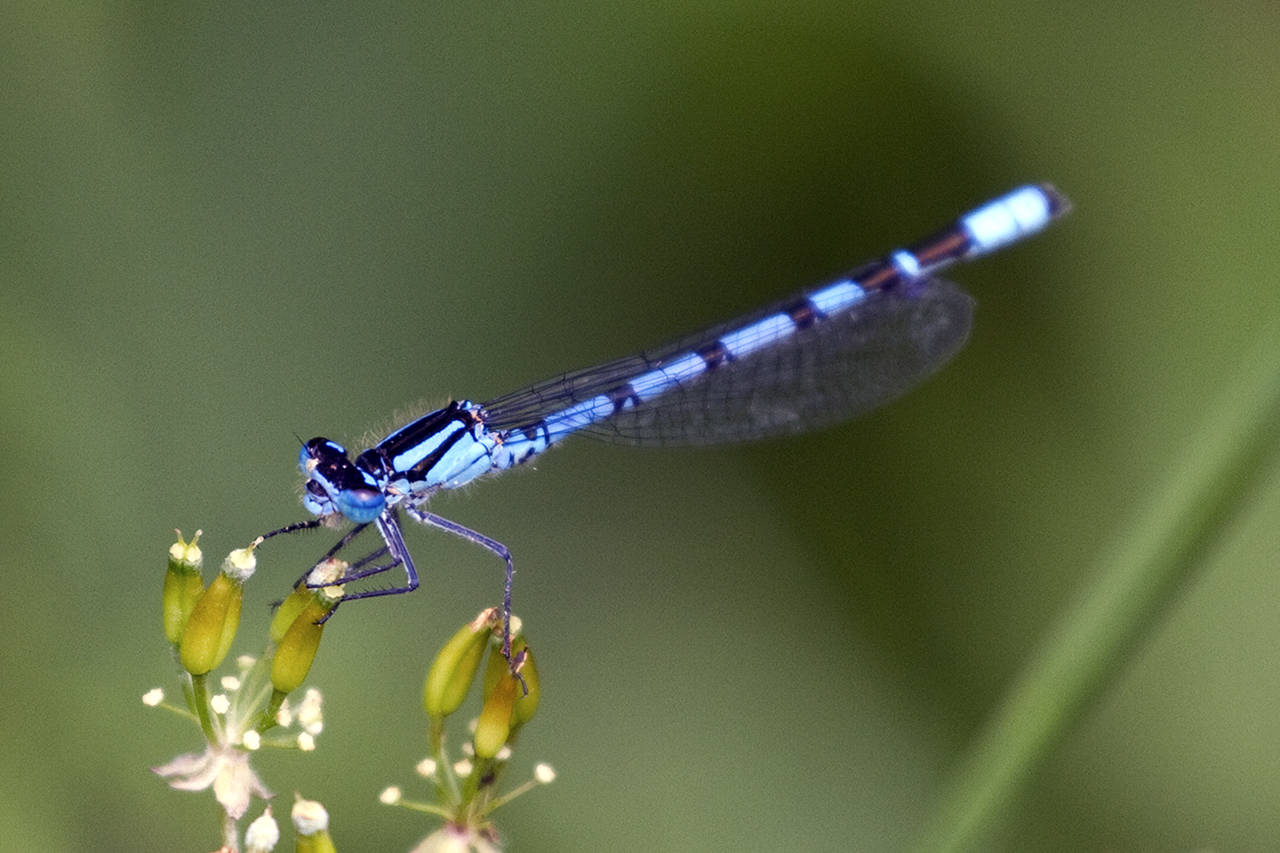By Lou Ann Mercier
WSU Master Gardener trainee
Have you heard enough about social distancing? Well, what about social distancing in the garden?
I imagine some of you would like to keep a “social” distance from bees and other insects you might encounter in the garden. Perhaps there are some others who would rather avoid insects altogether. Therefore, it might surprise you to know that attracting insects, especially the beneficial ones, is an important component of a healthy garden.
There are three basic steps to follow to attract beneficial insects to your home garden.
Step One: Identify the beneficial insects. They include praying mantids, stink bugs, lady beetles (ladybugs), ground beetles, earwigs, lacewings, ants, harvestmen (daddy longlegs), spiders, damselflies, hoverflies, butterflies and bees. While this list is not exhaustive, it is a good place to start.
Step Two: Learn the services these insects provide in the garden. Many of the insects listed above are predatory. They feed on mites, scale insects, aphids, leafhoppers, whiteflies and slugs, to name a few. Consider these insects free pest control. Other insects in this group are known as pollinators. As their name would imply, this group of insects pollinates the flowers and vegetables in the garden. Obviously, any insect could be considered a pest, but overall these insects provide more good than bad for the garden.
Step Three: Provide these insects with their native habitat. This includes the basics to sustain life: food, water and shelter.
Their preferred food is the aphids, mites and scale insects, as mentioned above. Some beneficial insects also feed on the sugary nectar and pollen from flowers. It is, therefore, important to have flowers in a vegetable garden to feed these insects if the pest population is low.
In addition to food, these insects need water. Their native habitat is often near wetlands, so be sure to make water available. Adding water to a garden could be as simple as putting a shallow dish of water out for insects to enjoy. Make sure to add some stones or pebbles to it so the insects have somewhere to land.
These beneficial insects also need a place to live. They prefer to take shelter in native plants, leaf litter and wood debris. They also overwinter their eggs in garden debris. Surprisingly, having a tidy garden might actually make it less healthy by eliminating beneficial insects.
Rather than creating a habitat to attract these beneficial insects, it might seem easier to buy a bag of ladybugs for release in the garden. Unfortunately, purchased beetles often fly away. Therefore, it is best to create their preferred habitat, as described above, and attract native beetles to the garden for the best success.
Ladybugs are portrayed as friendly, and cute in popular culture. It is easy to assume these are beneficial insects. This holds true for butterflies as well. The image of these colorful beauties is replicated throughout our society. It is important to take some time to learn more about other beneficial insects, like the damselfly.
The damselfly, another beautifully colored insect, is similar to a dragonfly. The damselfly lays its eggs in water, and the subsequent nymph also lives in the water. The nymphs eat mosquito larvae, and the adults eat aphids, although not exclusively. The adults are predators that are active during the day. Try to spot them hovering over a plant getting ready to capture prey with their spiny legs.
Remember, not all insects are pests. There needs to be a healthy balance of beneficial insects to help suppress the less desirable ones. Frustration or lack of knowledge regarding insects could tempt someone to choose total eradication. Hopefully, home gardeners, armed with this new knowledge, will tolerate insects in their garden.
Nature is designed to be a diverse, balanced community, and the goal is to support that community, not disrupt it.
Lou Ann Mercier is a member of the 2020 WSU Master Gardener Class. She enjoys academic pursuits and gardening, her latest recreational endeavor.
Got questions?
Do you have a problem with a plant? Do you want some help with disease prevention in your vegetable garden? Do you need help finding the right plant for your garden? Ask WSU Master Gardener! Go to PNWMG.org and post your question where you see “Ask a Master Gardener” toward the bottom of the home page.


